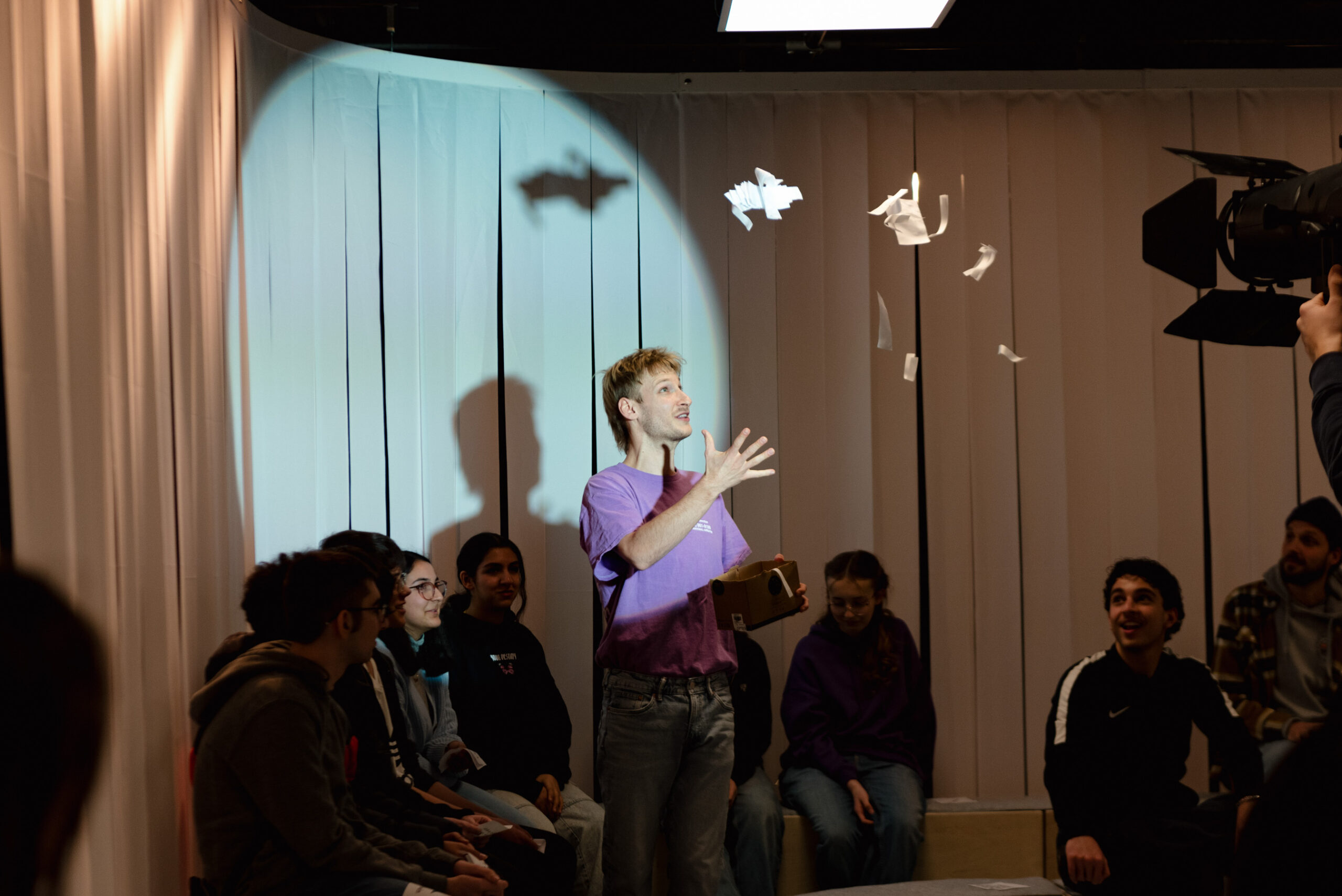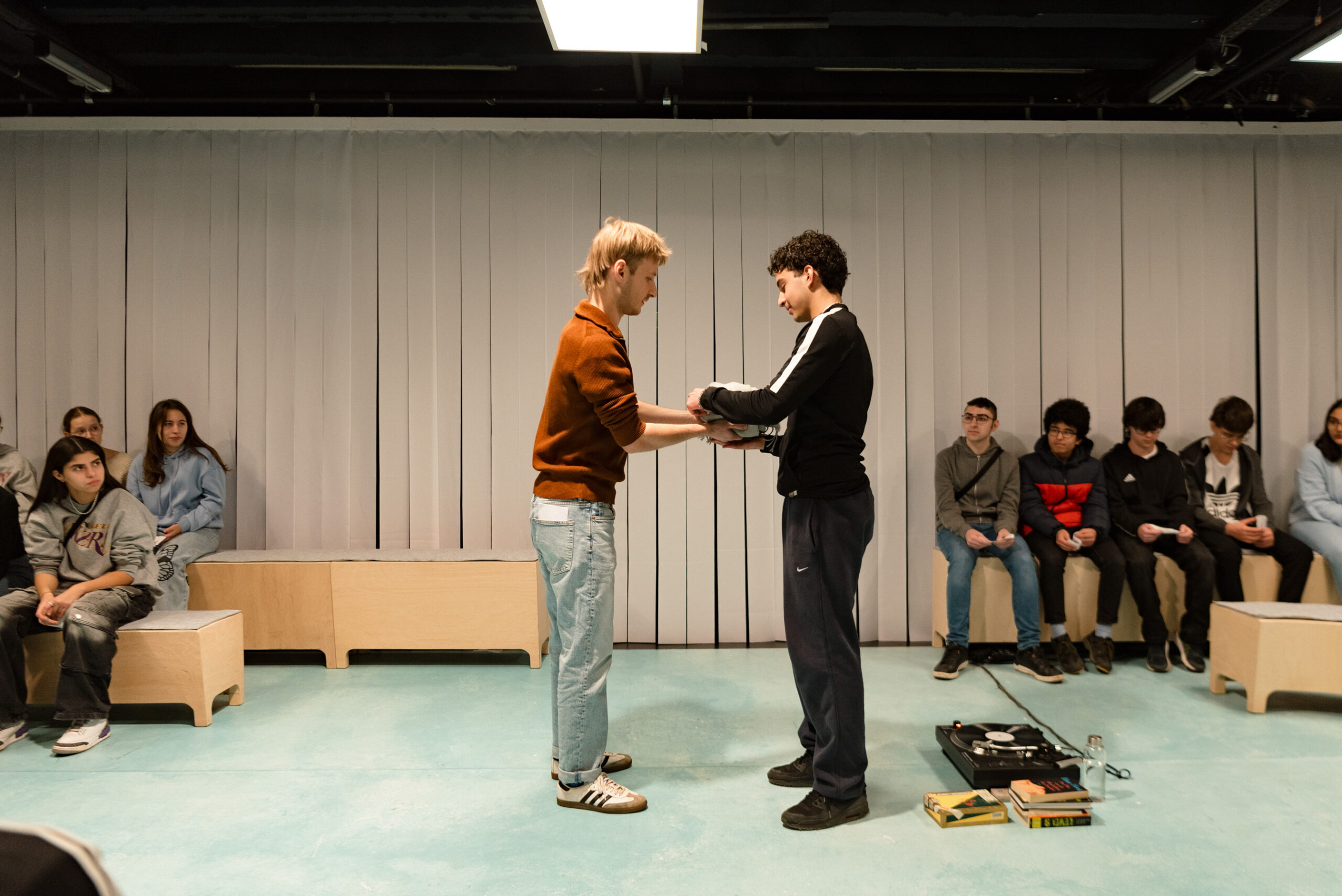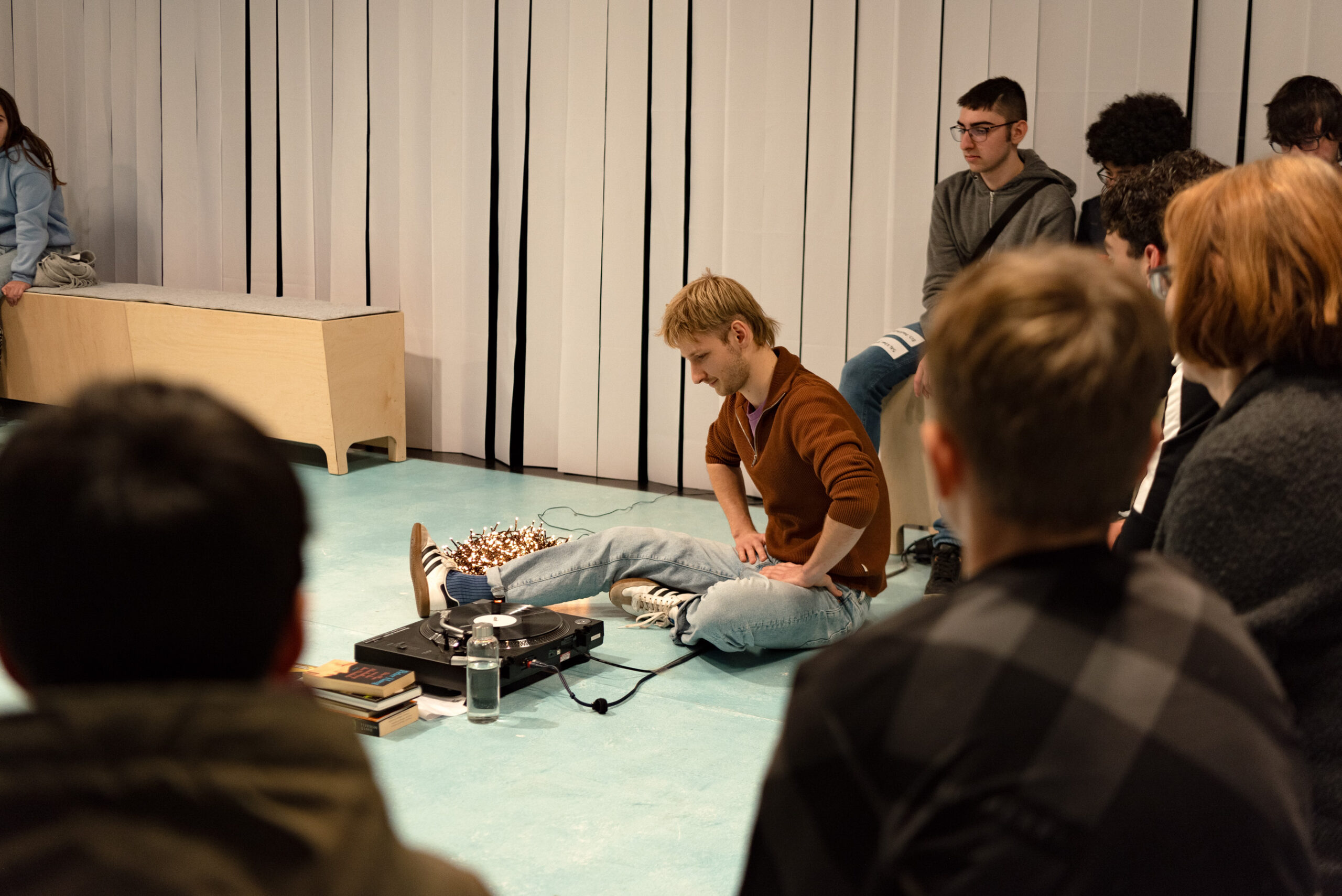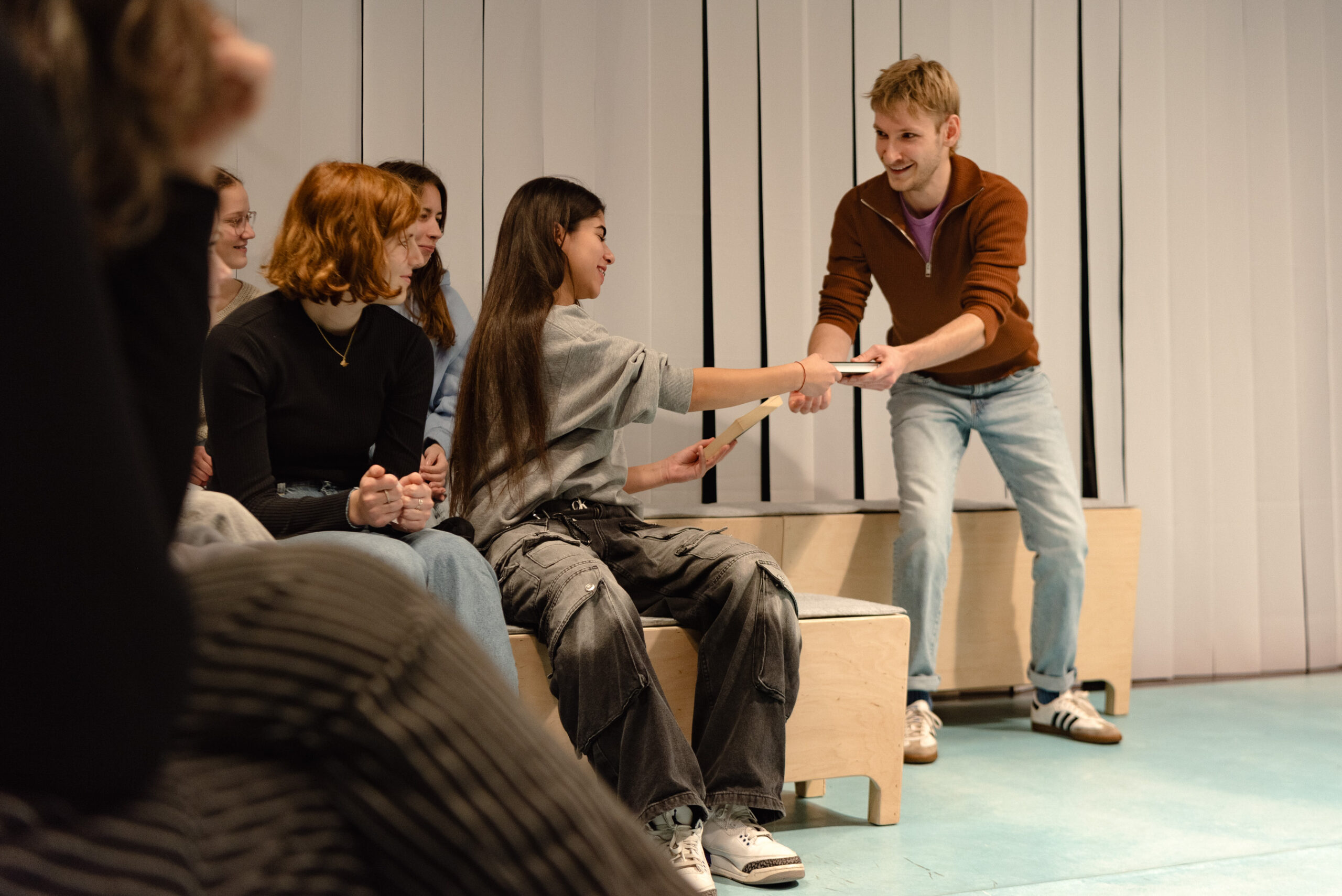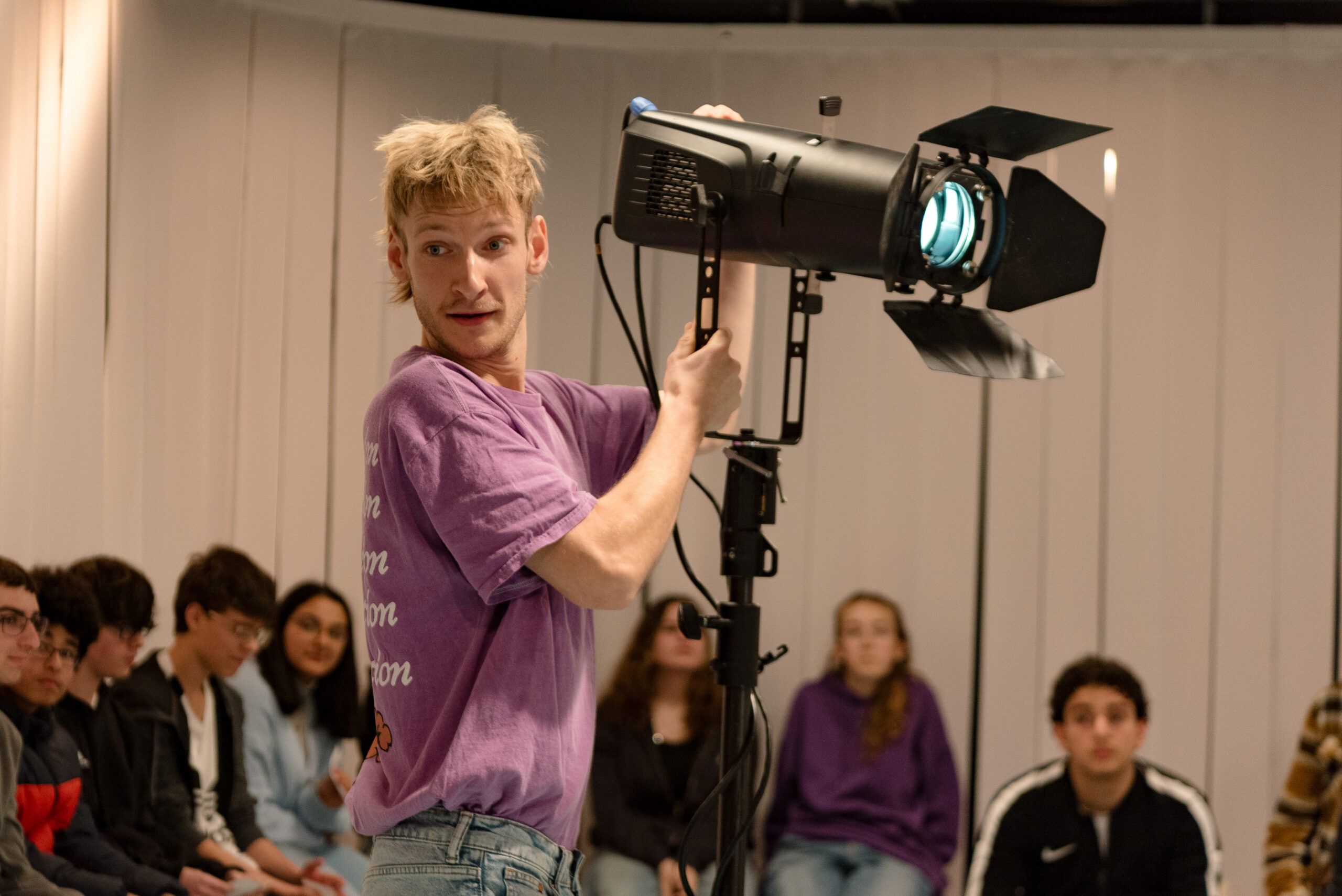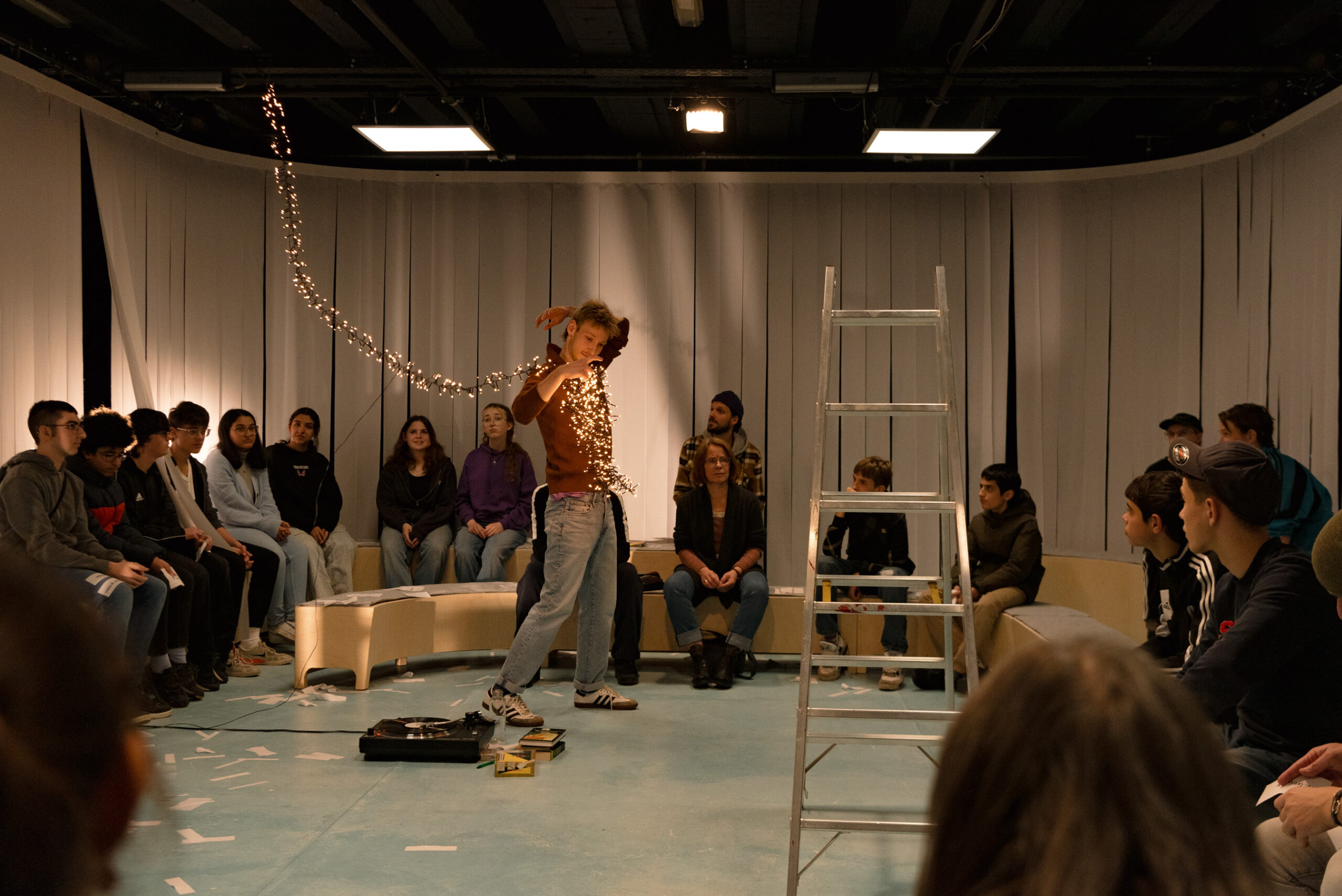All das Schöne
Solo piece with audience by Duncan Macmillan; German by Corinna Brocher
Rowohl Theatre Publishers, Duncan Macmillan
Content
1. Lemon ice cream, 2. water fights, 3. staying up later than usual and watching TV, 4. Die Farbe Gelb: the colour yellow… With everything that is beautiful about the world.
The protagonist of this solo piece, which can only be told together with the audience, begins making a list of all things nice in the world for his mother in the hope that this will end her depression and life will go on. In a way, it does. But not everything automatically becomes good. There is always a strange sadness lurking, there are crashes, embarrassing situations and injuries. The list has grown and grown over the years, approaching a million: 999,997. The alphabet, 999,9998. Inappropriate songs in emotional moments, 999,999. Completing a task….
A courageous, life-affirming and thought-provoking play about absent parents, faithful companions and big and small life decisions. The play deals with themes of depression as well as the suicide of the protagonist’s mother.
If you or someone close to you is in a crisis, sees no hope and is perhaps thinking about no longer wanting to live, you can find help from the following places:
Arbeitskreis Leben Stuttgart e.V.: 0711 600620 www.ak-leben.de
Anonymous online counseling by young people for young people:
www.youth-life-line.de, www.u25-freiburg.de and www.nethelp4u.de
Crisis and emergency service Stuttgart: 0180 511 0 444
Telephone counseling: 0800 111 0 111 or 0800 111 0 222
Police and rescue service: 110 and 112
Notes on sensory stimuli
Sensory impressions such as bright light, loud noises or sudden events can be overstimulating or overwhelming for some people. That’s why you’ll find a list of sensory stimuli in “All das Schöne” here. They may be good to be aware of for you or someone who is attending the performance with you.
– During the performance, the audience sits in the same room as the actor. The room is separated from a larger room by a curtain made of paper strips.
– The actor plays and speaks in front of, next to and behind the audience. At times, he sits close to the audience.
– The audience sits on benches without backrests during the performance. (You can ask for a chair with a backrest if you need one).
– There is music with a noticeable bass and a quiet, high, continuous tone.
– There is a loud leaf blower. There is wind from the leaf blower. The paper strips are whirled up at that moment.
– There is a movable spotlight that can briefly dazzle the audience.
– The audience and the actor can always see each other.
– The actor makes direct eye contact with some members of the audience. The actor addresses the audience directly at times. Individual audience members are invited to take on roles or tasks in the play. (You can decline the invitation by shaking your head or denying it. This is not specifically stated in the play).
– The piece can trigger great emotions. The actor also shows strong emotions at times, such as great joy, infatuation, anger and a feeling of confinement.
If you have any concerns or questions, please contact us at ticket@jes-stuttgart.de. We are happy to work out how we can help together with you.
Content Note
The play deals with topics such as depression, the suicide of a family member and the death of a pet. It also deals with child neglect and separation.
Ages 14 and up, grades 8 and up
Prices: Children/young adults €7.00, adults €12.00
Venue: Rehearsal Stage (Seating capacity 60)
Besetzung
Production
Stage and costumes
Music
Dramaturgy
Theater pedagogy
Assistant Director
Lighting & Sound
Technical
